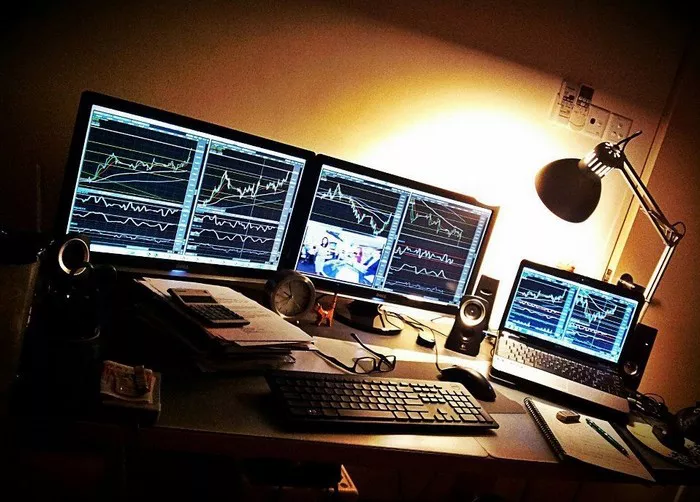Investing in stocks is a popular way to grow wealth over time. However, many investors often find themselves wondering how frequently they should check their stock portfolios. This article will explore the factors that influence how often one should monitor their stocks, the potential benefits and drawbacks of frequent checking, and strategies for effective stock management.
Understanding the Stock Market
Before diving into the frequency of checking stocks, it’s essential to understand the basics of the stock market.
What is the Stock Market?
The stock market is a collection of markets where shares of publicly traded companies are bought and sold. Investors can purchase stocks, bonds, and other securities through stock exchanges. The market operates on supply and demand principles, and stock prices fluctuate based on various factors, including company performance, economic conditions, and investor sentiment.
How Stocks Work
When an investor buys a stock, they purchase a share of ownership in a company. The value of that stock can increase or decrease based on the company’s financial performance, market conditions, and broader economic factors. Investors typically aim to buy low and sell high, generating profits through capital appreciation and dividends.
Factors to Consider When Checking Stocks
1. Investment Goals
Your investment goals significantly influence how often you should check your stocks. Are you a long-term investor looking to build wealth over time, or are you a short-term trader seeking quick profits? Understanding your objectives will help guide your stock monitoring strategy.
Long-Term Investors: If your goal is long-term growth, you may not need to check your stocks as frequently. A quarterly or monthly review might suffice.
Short-Term Traders: If you’re engaged in day trading or swing trading, you’ll need to monitor your stocks closely, possibly checking them multiple times a day.
2. Market Conditions
The state of the stock market can also impact how often you should check your investments. In volatile markets, prices can fluctuate dramatically, which may require more frequent monitoring.
Bull Markets: In a bull market, stocks tend to rise, and you might feel less urgency to check your portfolio frequently.
Bear Markets: In bear markets, stocks decline, and investors may want to monitor their holdings closely to make informed decisions.
3. News and Events
Major news events can significantly impact stock prices. Economic reports, earnings releases, and geopolitical events can all create market volatility.
Earnings Reports: Companies typically release earnings reports quarterly. Investors often check their stocks around these dates to gauge performance and potential price movements.
Economic Indicators: Economic data, such as unemployment rates and inflation, can influence market sentiment and should be monitored regularly.
4. Portfolio Composition
The makeup of your portfolio can determine how often you should check your stocks. Diversified portfolios with various asset classes may require less frequent monitoring than concentrated portfolios focused on a few stocks.
Diversified Portfolios: If your investments are spread across multiple sectors and asset classes, you may only need to review your portfolio periodically.
Concentrated Portfolios: If you hold a significant position in a few stocks, you may need to check those stocks more frequently to manage risks effectively.
5. Personal Circumstances
Your personal circumstances, such as time availability and emotional capacity, can also influence how often you check your stocks.
Time Constraints: If you have a busy schedule, you may prefer a less frequent monitoring approach, such as weekly or monthly reviews.
Emotional Impact: Constantly checking your stocks can lead to emotional decision-making. If you find yourself stressed by daily price fluctuations, consider reducing how often you check your portfolio.
See Also: How Much Should I Invest in Small Cap Stocks?
Benefits of Regularly Checking Your Stocks
1. Staying Informed
Regularly checking your stocks allows you to stay informed about your investments. You can quickly identify significant price changes, news, and events impacting your holdings.
2. Making Informed Decisions
By monitoring your stocks, you can make timely and informed decisions regarding buying, holding, or selling your investments. This can help you capitalize on market opportunities or minimize losses.
3. Rebalancing Your Portfolio
Frequent portfolio checks enable you to assess the balance of your investments. If certain stocks or sectors have outperformed or underperformed, you may need to rebalance your portfolio to align with your investment goals.
4. Adjusting to Market Conditions
The stock market is dynamic, and conditions can change rapidly. Regularly checking your stocks allows you to adjust your strategy based on current market trends and economic conditions.
Drawbacks of Frequently Checking Stocks
1. Emotional Decision-Making
Constantly monitoring stock prices can lead to emotional reactions. Investors may panic during market declines or become overly confident during rallies, leading to impulsive decisions.
2. Time Consumption
Frequent checks can be time-consuming, especially if you have a diverse portfolio. This can detract from other important aspects of your life, such as work and family.
3. Overtrading
Regularly checking stocks may lead to overtrading, where investors buy and sell too frequently. This can result in increased transaction costs and potentially lower returns over time.
4. Information Overload
The sheer amount of information available can be overwhelming. Investors may find it challenging to discern valuable insights from noise, leading to confusion and indecision.
Recommended Frequency for Checking Stocks
1. Long-Term Investors
For long-term investors, a quarterly or biannual review may be sufficient. During these reviews, you can assess overall portfolio performance, rebalance as needed, and stay informed about significant market changes.
2. Short-Term Traders
Short-term traders, including day traders and swing traders, may need to check their stocks multiple times a day. Monitoring technical indicators and market news is crucial for making timely trading decisions.
3. Event-Driven Checks
Consider checking your stocks around major events, such as earnings releases, economic data announcements, or significant news events related to your holdings. This ensures you are aware of potential market-moving information.
4. Weekly or Monthly Reviews
For investors who fall between long-term and short-term categories, consider a weekly or monthly review schedule. This allows for regular assessment without the stress of daily monitoring.
Developing a Stock Monitoring Strategy
1. Set a Schedule
Establish a regular schedule for checking your stocks. This can help you avoid constant monitoring and reduce emotional decision-making. For example, you might choose to review your portfolio every Friday or at the end of each month.
2. Use Alerts and Notifications
Many brokerage platforms offer alert systems that notify you of significant price changes or news related to your holdings. Setting up these alerts can help you stay informed without constantly checking your portfolio.
3. Focus on Key Metrics
Instead of checking stock prices daily, focus on key performance metrics during your scheduled reviews. These may include:
- Price changes
- Earnings reports
- News events
- Analyst ratings
4. Document Your Observations
Keep a record of your portfolio reviews. Documenting your observations can help you identify trends and make more informed decisions over time.
5. Stay Educated
Continuously educate yourself about the stock market and investment strategies. Understanding market dynamics can enhance your ability to make informed decisions during your scheduled reviews.
Conclusion
Deciding how often to check your stocks depends on several factors, including your investment goals, market conditions, and personal circumstances. For long-term investors, quarterly or biannual reviews may be sufficient, while short-term traders may need to monitor their stocks multiple times a day.
Regular monitoring can provide benefits such as staying informed and making timely decisions, but it can also lead to emotional decision-making and overtrading. Establishing a stock monitoring strategy that aligns with your goals and preferences can help you navigate the stock market effectively.
Ultimately, the key to successful investing lies in balancing vigilance with patience. By staying informed while avoiding excessive monitoring, you can build a robust investment strategy that helps you achieve your financial goals.
Related topics:

































